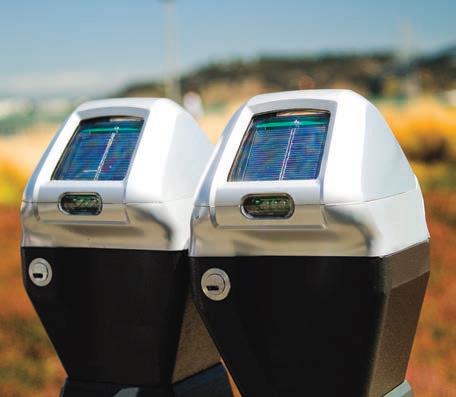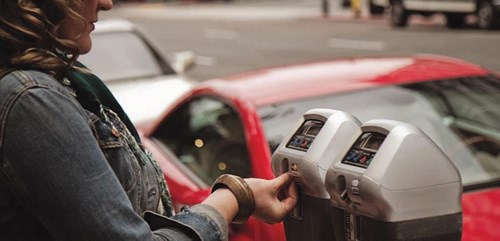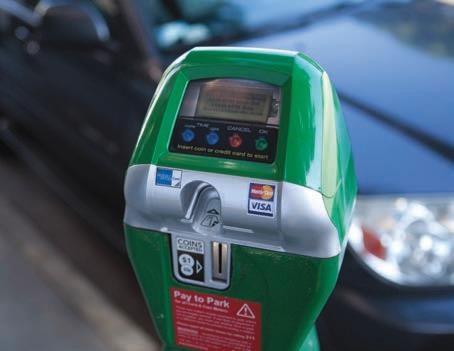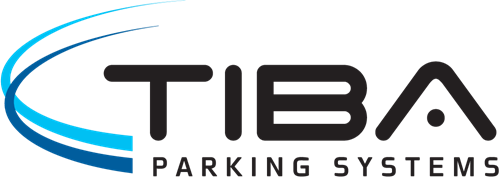Making the Latest On-Street Parking Technology Financially Feasible

People aren’t so sure about numbers these days. Suspicious math and faulty logic may seem to be the trend in the world of business and finance, but the truth is, integrity and innovation still work hand in hand to create high return.
In Los Angeles, where the car is king, there is a lot of money to be made – or lost – in on-street parking. With a population of 3.8 million and a car culture second to none, Los Angeles city officials faced a serious challenge. In early 2010, it was clear that broken and outdated meters were inconvenient and unreliable, costing the city serious revenue. No only that, most of the city’s meters only accepted coins, and just coming off a recent rate increase, officials knew credit card payment must be added to the equation.
Financing proved to be the largest obstacle to improvement. With minimal funds for an upgrade, Los Angeles had to find a way to replace its single-space parking meters with on-street technology that would guarantee efficiency, increased revenue, and public support — all without major upfront capital expenses. And it had to be done quickly.
The solution came in the form of a threeyear lease-to-own contract with IPS Group. The city, already considering public-private partnership, would lease new card/coin single space meters from IPS and use the increased revenue generated after installation to pay for the technology.
The city estimated a pilot installation of 10,000 meters would bring a yearly net increase of $1 to $1.5 million.
The Smarter Public-Private Partnership
The Public-Private Partnership (PPP), specifically the partnership between a city government and the parking industry, does not have to be configured the same way every time. Performance, profitability and sustainability will always be the goal, but the means to that end can be a custom fit for the particular city and its partner. The parking service provider must deliver the best technology and service. And the city leadership must consider the needs of its population, its overall financial status, and the true worth of its parking infrastructure.
Los Angeles chose to install IPS coin and card technology into its existing singlespace meter housings. The anticipated increase in profitability would pay the lease and eventually the city would own the meter technology and simply pay IPS for service and any future improvements.
The partnership would allow the city to make the changes quickly, realize a profit and pay for
the upgrade without creating additional debt. In May 2010, the installation began. The process
took 12 weeks for 10,000 meters and was done without any up-front costs for Los Angeles.
With the varied options of parking management systems on the market today, Dan Mitchell, Senior Transportation Engineer at the Los Angeles Department of Transportation (LADOT) explains, “IPS was the only company who could bring about quick implementation on the streets.”
Why Use IPS Coin and Card Single-Space Meters?
Los Angeles city officials had considered all of their options. Leaving the outdated meters with coin-only mechanisms in place was inadvisable. Credit card capability was a must. Pay-by-space, pay-and-display, and multiple-space meters were all considered, but the city saw the savings to be had in using its existing single-space poles and housings. IPS’s universal meter mechanism fits into any single-space meter housing and accepts coins, credit/debit cards, smart cards and tokens.

Convenience – With higher rates, users need the option to pay with credit cards. Even if they have enough coins, many users find it easier to pay with plastic. For cities, the option to use existing poles and bases speeds installation and saves hundreds of thousands demolition, equipment and installation costs.
Reliability – The new meters are wirelessly connected to the Los Angeles Department of Transportation, giving staff immediate information about needed repairs and allowing them to respond proactively. With outdated meters, problems are discovered only if they are physically monitored by a city employee or reported by hotline by a member of the public.
Sustainability – Every step taken to help the environment is a step in the right direction. Choosing IPS single-space meters allowed Los Angeles to keep its existing poles and housings in place. The new meter mechanisms are solar-powered, which maximizes battery life and is environmentally friendly.
Profitability – Giving users more payment options translates to more payment in total.
When given the option to pay with a credit card, parkers are more likely to pay for the
maximum amount of time needed since they are not limited to the amount of coins they
have in their pockets. Reducing coin use also reduces the occurrence of non-functioning,
jammed meters and full coin vaults, increasing uptime and profitability. And when jams do occur, patrons are still able to pay for parking by card. This capability allowed LADOT to implement a new policy requiring meter payment regardless of jams, which essentially eliminated rampant vandalism.
The Real Numbers
In October 2010, City of Los Angeles Mayor Antonio R. Villaraigosa announced that the new meter technology had generated an additional $230,000 in one month - nearly doubling the city’s original net revenue estimate.
The initial 10,000 IPS meters installed in Los Angeles also:
- operated at greater than 99 percent uptime
- reduced citywide complaints to the hotline by 55%
- increased parking meter citations 15%
- decreased contested citations by 75%
- accepted credit card payments for more than a third of revenue
City leaders were so impressed with the IPS meters they ordered 10,000 additional meters and made another order shortly thereafter. Today, there are a total of 27,000 IPS single-space meters operating in Los Angeles. The solar powered meters keep approximately 60,000 AA
batteries out of the dump each year.
“By reusing our existing poles and using clean solar power, these new coin and card meters are a win-win for customers, the city and the environment,” Mayor Villaraigosa said. “Since we installed the first of these new meters in May, they immediately began earning their keep in the City of Los Angeles. These meters are helping contribute to the city finances while providing more reliable and convenient service to drivers.”
Lessons Learned
City government and independent contractors can work together to improve conditions for the public, apply innovative technology, and improve revenue. Los Angeles and IPS created a partnership that immediately addressed the city’s metered parking needs and designed that partnership to pay for itself. The partnership met the needs of the city by providing new meter technology that was environmentally friendly, more reliable, more profitable and could be installed quickly. No bonds were required nor any borrowing of funds from the city’s other departments, proving it is possible to improve infrastructure without wreaking financial havoc.
Los Angeles’s new meters now bring in more than twice the net revenue that was initially estimated, and while it has the full support of IPS, the city still has control of its parking technology and the potential for increased and sustained revenue generation.
About IPS Group, Inc.
San Diego-based IPS Group, Inc. is a design, engineering and manufacturing company focused on low power wireless telecommunications and parking technologies. IPS is proud to manufacture in California and has been delivering world-class solutions to the telecommunications and parking industries for over 15 years. The company is best known for their patented credit card enabled, solar powered single-space parking meter and web-based management system.




Comments
There are no comments yet for this item
Join the discussion